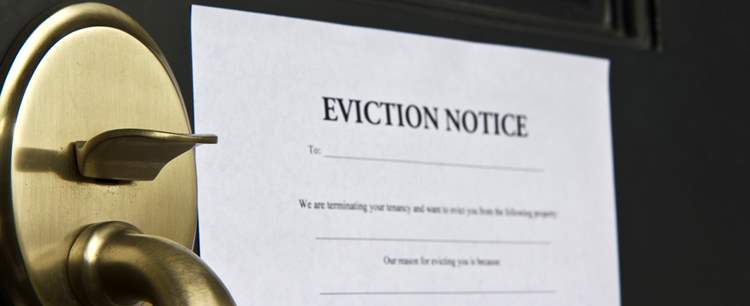Have your tenants fallen behind with the rent, are they making a nuisance of themselves with neighbours, have they breached the terms of their tenancy agreement in any other way, or do you simply want to be shot of them?
If they are unwilling to leave voluntarily, your only option is eviction. But, in the words of advice published by solicitors DAS Law on the 19th of July 2018, eviction can prove something of a minefield.
Unless you make sure to carry out any eviction within the letter of the law, things might go horribly wrong.
The legalities
The law is there to protect the interests of both landlord and tenant – and is strictly applied to ensure that the latter are not unfairly forced to move from accommodation they have rented.
Your rights as a landlord to repossess your property depend on the circumstance in which you want your tenants to leave:
Rent arrears
- probably the most solid case for eviction and repossession is made if your tenants default on the rent that is due – but even here strict rules apply;
- if the tenant is in arrears, you must still serve a notice to quit, requiring them to leave the property within 14 days – this is called a section 8 notice and, if the tenant has a fixed-term tenancy (an assured shorthold tenancy, for example), the tenancy agreement must allow for your asking for repossession by way of a section 8 notice;
- if the tenant refuses to comply with your notice to quit, you may apply to the courts for a possession order and, if necessary, bailiffs may need to be sent in to enforce any order you are granted;
Nuisance tenants
- if your tenants are causing a nuisance to neighbours or others living in the immediate vicinity you may also issue a section 8 notice to quit – and you may apply to the courts for a possession order following its issue;
- you are not guaranteed an order of possession by the courts on this basis, however;
- a safer bet might therefore be the issue of a section 21 notice, for which you are not required to give any reasons for your notice of repossession – with the result that landlords are typically granted possession under such circumstances;
Other reasons
- since you do not need to give any reasons for a section 21 notice and eviction, this might be the route to take if you want your tenants to leave;
- even so, if there is a fixed-term tenancy agreement, the effective date for enforcement of any section 21 notice cannot be before the expiry of that fixed term.
There may be times when an eviction seems the only way to secure your rights as a landlord – your business depends on rent being paid when it falls due, for example. But there may be other reasons, too, why you may need tenants to leave.
Whatever the circumstances, however, make sure to follow the legal intricacies to the letter – or you might end up in serious trouble.






